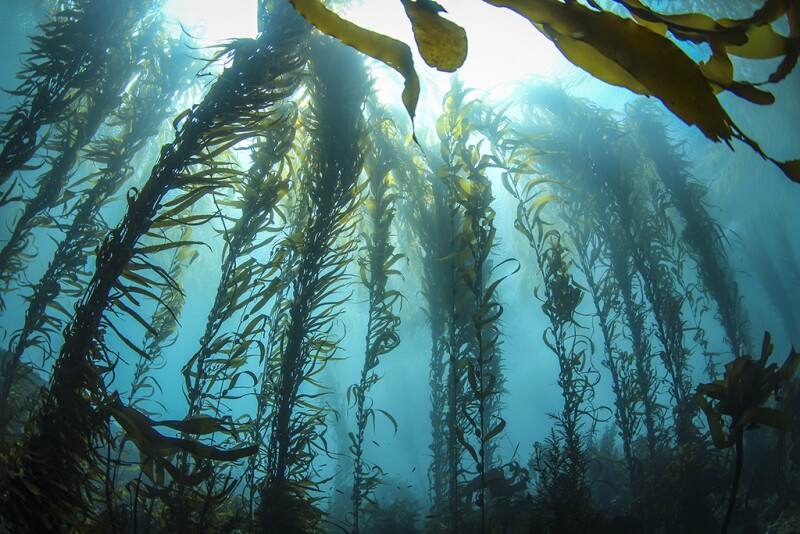The macroalga Macrocystis pyrifera is a giant brown seaweed characterized by its fast growth rate and photosynthetic metabolism that generates carbon sources from atmospheric CO2. This alga is a potential biomass to be applied in bioenergy with carbon capture and storage (BECCS), which enables carbon-negative biofuels to avoid greenhouse emissions from biomass processing and use. The study described in the complete paper is related to the thermal conversion of this alga and serves as an opening to the study of the thermal conversion of biomass commonly found in desertic or semidesertic climates.
BECCS and M. pyrifera
The relevance of BECCS and carbon-negative fuels is in the ability of plants and algae to capture atmospheric CO2 and simultaneously be a source of carbon. Second-generation biofuels—fuels derived from nonedible terrestrial crops or waste such as miscanthus, wheat straw, or paper waste—are a promising alternative. The disadvantages of their generation, however, include the high cost of related technologies and the risk of compromising food security in some areas because of the amount of land devoted to energy crops.
Algae are classified as microalgae or macroalgae (also called seaweed). The harvesting methods of macroalgae are less energy-intensive and expensive than the methods used for microalgae.
M. pyrifera, a brown macroalgae, presented several advantages because of its large size (12–22 m long), fast growth rate (7–30 cm/day), its high gas yield, and its potential sustainable cultivation.


